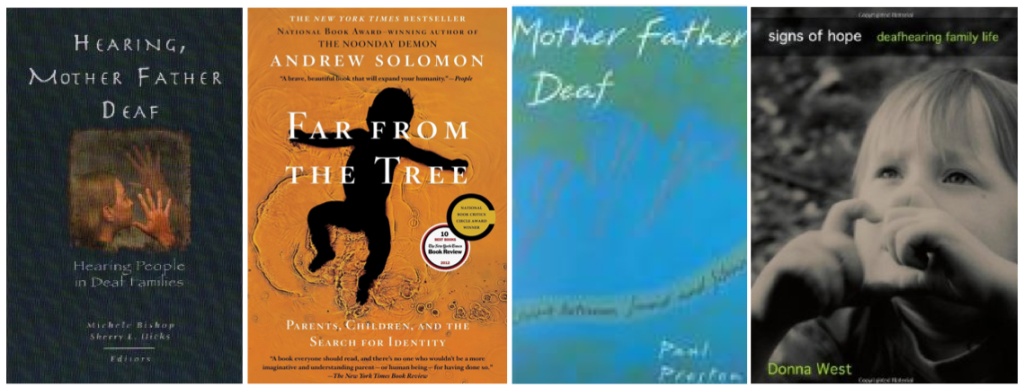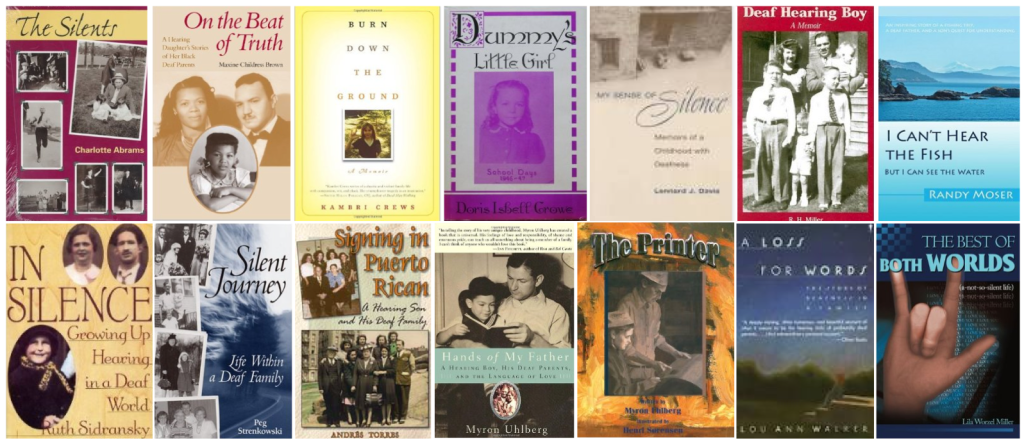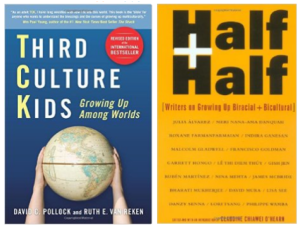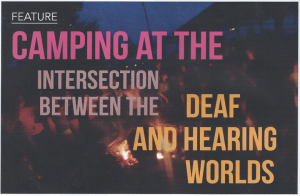We are consistently working to gather current information to about Codas/Kodas and their families. Check back as we will be updating this page often!
Family Relationship Studies:
- Bishop, Michele and Sherry Hicks. Hearing, Mother Father Deaf
- Solomon, Andrew. Far from the Tree; Parents, Children and the Search for Identity
- Preston, Paul. Mother Father Deaf; Living Between Sound and Silence
- West, Donna. Signs of Hope – Deafhearing Family Life
Autobiographies:
Coda autobiographies may provide a useful insight for Deaf parents into the experiences of their Koda children. Reading them together can be a platform for opening up discussion on difficult subjects and tensions that parents and children may experience. A number have been published in recent years and they have been organized below.
- Abrams, Charlotte. The Silents.
- Brown, Maxine Childress. On the Beat of Truth: A hearing daughter’s stories of her black deaf parents
- Crews, Kambry. Burn Down the Ground
- Crowe, Doris I. Dummy’s Little Girl
- Davis, Lennard J. My Sense of Silence
- Miller, RH. Deaf Hearing Boy
- Moser, Randy. I Can’t Hear the Fish; But I Can See the Water
- Sidransky, Ruth. In Silence; Growing Up Hearing in a Deaf World
- Strenkowski, Peg. Silent Journey; Life Within a Deaf Family
- Torres, Andres. Signing in Puerto Rican: A Hearing Son and his Deaf Family
- Uhlberg, Myron. Hands of My Father: A Hearing Boy, his Deaf Parents, and the Language of Love
- Uhlberg, Myron. The Printer
- Walker, Lou Ann. A Loss for Words: The Story of Deafness in a Family
- Worzel-Miller, Lila. The Best of Both Worlds : A Not-So-Silent-Life
DVDs/Videos:
The emergence of DVDs and videos has enabled us to capture the talent of some of the most proficient ASL storytellers and performers of the twentieth century. Sign-Masters like, Mary Beth Miller, Gil Eastman, Bill Ennis, Clayton Valli, Debbie Rennie, Patrick Graybill, and Elinor Kraft are excellent models for the expressive potential of American Sign Language. ASL literature can and should be introduced to hearing and deaf kids as they are encouraged to play and experiment with language. Coda performers also provide language models and the content of their stories often provide a humorous
- Alan Abarbanell – Abababa ALife
- Bonnie Kraft – Tomorrow Dad Will Still Be Deaf & Other Stories
- Coda Brothers – Laugh, Learn, Sign (Volume 1)
- Keith Wann – My Experience Different
- Keith Wann – Watching Two Worlds Collide
Additional Bilingual/bicultural Resources:
Though not directly similar, texts that describe the intersectional experiences of bilingual and bicultural children can also be helpful. We recommend the following texts:
– O’Hearn, Claudine Chiawei. Half and Half; Writers on Growing Up Biracial and Bicultural
– Pollock, David and Ruth Van Reken. Third Culture Kids; Growing Up Among Worlds
Research on KODA Camps:
There have been few efforts to examine the effects of KODA Camp experiences on c/koda language and identity development. A number of camp programs offer frequently asked questions sections for parents interested in programs. These are a useful starting point for addressing the concerns of parents and potential campers. In this article for NAD Magazine, Jenn Legg discusses her experiences as camp director, and the benefits she has identified for kodas and their families.
[Article reproduced here with permission from the NAD]




